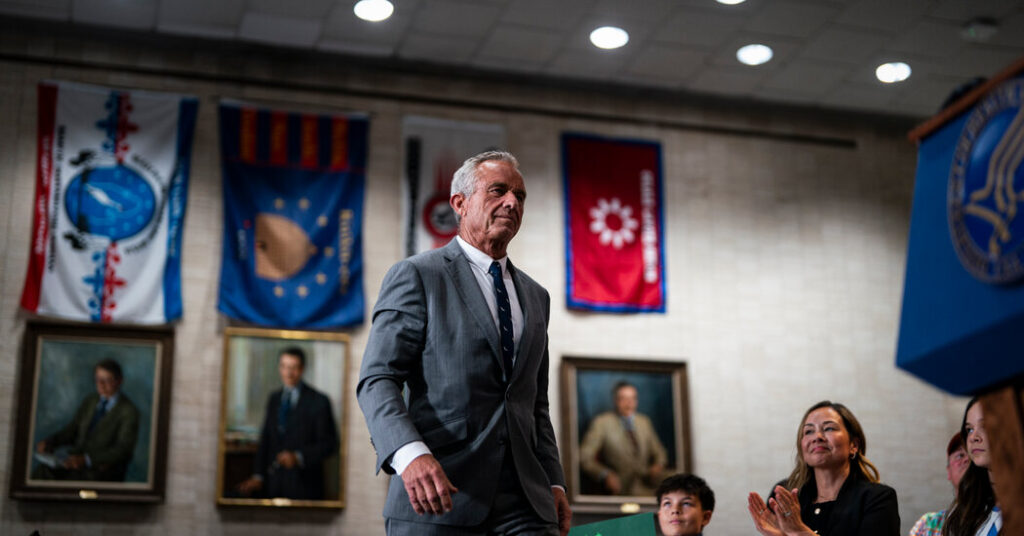Health Secretary Robert F. Kennedy Jr. intensified his battle against the food industry on Tuesday by stating that “sugar is poison.”
This declaration came during a high-profile press conference where he asserted that he has “an understanding” with leading food manufacturers to eliminate petroleum-based food colorings from their products by 2026.
While no representatives from the food industry attended the conference, and no one has publicly supported Mr. Kennedy’s demands, the International Dairy Foods Association has committed to removing artificial colors from milk, cheese, and yogurt used in schools by the beginning of the 2026 school year.
Nonetheless, Mr. Kennedy and his team indicated that various major food manufacturers and some fast-food chains have reached out for advice from the agency.
“In four years, we’ll see most of these products gone from the shelves, or you’ll be aware of them when you shop,” Mr. Kennedy claimed.
This initiative to eliminate dyes from food products marks Mr. Kennedy’s first significant reform attempt in the food industry, which he has historically criticized for creating and promoting ultra-processed foods that he argues contribute to obesity and various health issues, including diabetes and heart disease.
He amplified his campaign with the statement about sugar, expressing concern that government guidelines suggest “a large amount of sugar” for children, claiming it is detrimental to their health, creating addiction, and altering their taste preferences.
The Food and Drug Administration advises that added sugars—those not naturally occurring in foods like fruits—should make up no more than 10 percent of the diet for both children and adults.
“Sugar is poison,” Mr. Kennedy insisted, “and Americans need to be aware that it’s poison.”
Critics argue that while Mr. Kennedy’s aim to enhance the food supply is commendable, his budget cuts to research grants and staff reductions at agencies like the F.D.A. and National Institutes for Health could undermine his efforts. They noted that those responsible for overseeing the food industry are now unemployed.
Some have left in frustration. The top nutrition scientist at the N.I.H., Kevin Hall, recently resigned, citing censorship issues. Jim Jones, the head of the F.D.A.’s food division, departed last month, stating that “indiscriminate” layoffs made it “futile” for him to persist.
“I was eager to work towards the department’s goal of improving American health by tackling diet-related chronic diseases and chemical risks in food,” Mr. Jones wrote at that time.
Mr. Kennedy made his address in the grand hall of the Department of Health and Human Services, on a stage attended by so-called MAHA Moms—women supporting his “Make America Healthy Again” initiative—and their children.
He was accompanied by Dr. Marty Makary, the F.D.A. commissioner; Dr. Jay Bhattacharya, director of the National Institutes of Health; and Republican leaders from states participating in his MAHA movement, including the governor of West Virginia, who recently enacted legislation banning dyes in most foods.
Dr. Makary expressed optimism about collaboration with food manufacturers.
“You attract more bees with honey than with vinegar,” Dr. Makary remarked, expressing his belief in starting the process amicably to see if it can be accomplished without changes to regulations or laws.


